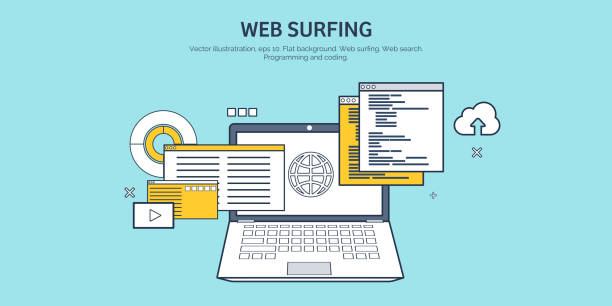Introduction to Efficient Web Browsing
Efficient web browsing is more than website access; it maximizes time while enhancing security. In a world where digital presence is at an all-time high, ensuring a smooth and productive browsing experience is essential. Deciphering the keys to a smooth surfing experience can be the difference between online freedom and aggravation. Users can transform browsing into an enjoyable, efficient process by understanding key techniques and tools. Navigating the internet should be a seamless experience, but often it’s a slog through slow load times and constant distractions. Efficient web browsing is a skill that allows the user to integrate tools and strategies to optimize their online activities adeptly. This art of browsing can be enhanced through thoughtful choices and a grasp of available technology. Platforms like Shift Browser provide a wealth of tips and community-driven insights, making them a valuable resource for those looking to improve their surfing skills.
Applying best practices can transform your online experience, from managing a sea of open tabs to ensuring your privacy in an age of data breaches. Efficient web browsing is not just about speed—it’s about holistic enhancement of safety, organization, and productivity. In the following sections, we’ll explore techniques and tools that promise efficiency, mirroring a finely tuned engine.
Importance of a Fast and Reliable Browser
A fast, reliable browser is the foundation of efficient web browsing. When choosing one, consider speed, security measures, and usability factors. Browsers like Google Chrome, Mozilla Firefox, and Safari are often top choices due to their impressive speed and robust security features. Studies have shown that high-speed browsers reduce page load time by up to 32%, drastically enhancing how smoothly your system operates. A quick, responsive browser forms the cornerstone of any efficient digital journey, giving users a significant productivity boost.
Must-Have Browser Extensions
Extensions are to browsers what apps are to smartphones—essential functionality enhancers. They tailor the browsing experience to meet specific needs, from managing complex password databases to translating entire webpages. Critical extensions might include ad blockers, grammar checkers, or task managers that integrate browsing tasks with productivity applications. With the help of these tools, you can turn your browser into a personalized utility powerhouse that will speed up and simplify online operations. Embrace these digital tools to reap the rewards of productivity and functionality.
Mastering Tab Management
Browser tabs are both the boon and bane of efficiency. On the one hand, they allow for multitasking; on the other, they can lead to clutter and distraction. Effective tab management involves tab grouping features to organize topics or tab suspension to free system memory from dormant sites. Learning to manage your tabs means getting the best of both worlds—a tidy workspace with access to all necessary resources. This management skill fosters an environment where efficiency and concentration are paramount, keeping digital chaos at bay.
Privacy and Security Essentials
In an era of data breaches and cyber threats, prioritizing privacy and security while browsing is crucial. This extends beyond private browsing modes; it involves employing VPNs to mask your activities and selecting browsers known for their built-in security features. Sty by strong encryption protocols, privacy-centric browsers guard your data against unwelcome intrusions. Implementing these essentials enhances secure web usage and promotes peace of mind as you navigate the digital realm.
Keyboard Shortcuts for Faster Navigation
Integrating keyboard shortcuts into your workflow is a must to refine your browsing habits. These shortcuts act like secret passages, allowing quick navigation and command execution without dragging your hands off the keyboard. From switching between tabs to opening and closing browser windows, these time-saving maneuvers enable smoother, more fluid interactions with your browser. Mastering these shortcuts boosts productivity, demonstrating that a little technique goes a long way in optimizing time online.
Ad Blockers: Pros and Cons
Ad blockers are popular tools for improving browsing experiences by minimizing unwanted interruptions. These tools diminish the distractions of ads and speed up load times by blocking data-heavy content from displaying on a webpage. However, they come with a trade-off—by limiting ads, you might inadvertently affect the revenue models of websites relying on ad income for support. Consider the pros and cons carefully, integrating ad blockers in a balanced manner to optimize your web experience without disrupting desirable content.
Finding the Right Browser for Your Needs
Selecting the ideal browser involves balancing personal preferences with usability needs. Factors like interface customization, plugin compatibility, and security protocols should guide your decision-making process. Testing different browsers helps identify the best fit for your internet habits and preferences. A little exploration may lead to discovering a browser that significantly enhances your digital activities, seamlessly aligning technology with personalized needs.
Implementing these strategies and tools can significantly enhance your web browsing experience, making it more efficient, productive, and secure. The digital world holds limitless potential for those who can navigate it skillfully and safely.



